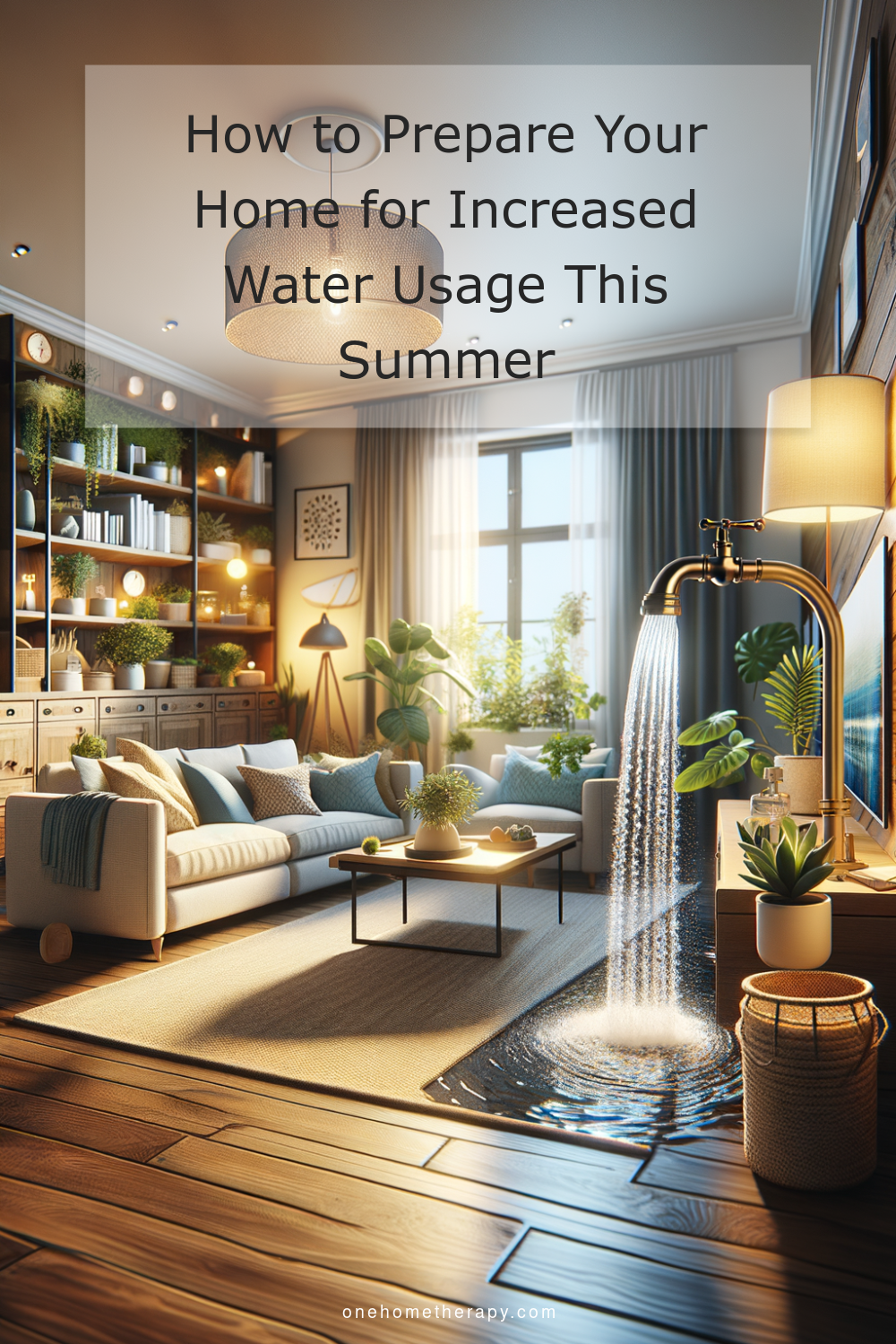Did you know that summer months can increase your household water usage by up to 30%? Whether it's watering your garden, filling up the pool, or cooling off with extra showers, these spikes can strain your home’s plumbing and inflate your utility bills. Preparing your home for increased water demand is essential to avoid costly repairs and maintain comfort throughout the hot season. In this post, we’ll explore practical strategies to optimize your home’s water efficiency, prevent damage, and save money while enjoying summer to the fullest.
From upgrading fixtures to smart irrigation tips, this comprehensive guide will empower you to handle summer’s water challenges confidently. Plus, we’ll share trusted products and resources to make your preparations easier and more effective.
Check out our best sellers:

Upgrade to Water-Efficient Fixtures for Significant Savings
- Install low-flow showerheads and faucets: These reduce water flow without sacrificing pressure, cutting water use by up to 50%.
- Replace older toilets with dual-flush models: Dual-flush toilets offer options for liquid or solid waste, saving gallons per flush.
- Use aerators on taps: Aerators mix air with water, maintaining a strong flow while using less water overall.
These upgrades not only reduce your water footprint but also lower utility bills and enhance your home's resale value. For further tips on boosting your home's value with minimal effort, check out how to improve your home's resale value with minimal upgrades.
Check out our best sellers:

Implement Smart Irrigation Systems to Avoid Waste
- Install drip irrigation: This targets water directly to plant roots, minimizing evaporation and runoff.
- Use timers and moisture sensors: Schedule watering during early morning or late evening and adjust based on soil moisture levels.
- Group plants by water needs: This prevents overwatering and ensures each plant receives appropriate care.
Smart irrigation reduces water waste and keeps your garden thriving even during heat waves. Learn more about designing climate-resilient landscaping in our article on how to choose the right landscaping for climate resilience.
Check out our best sellers:

Regularly Inspect and Maintain Plumbing to Prevent Leaks
- Check all visible pipes and faucets: Look for drips, corrosion, or damp spots that indicate leaks.
- Test your water meter: Shut off all water and monitor the meter for movement to detect hidden leaks.
- Schedule professional inspections: Annual plumbing checks can catch issues before they escalate into costly repairs.
Proactively maintaining your plumbing avoids water damage and ensures your system handles increased summer demand. For comprehensive home maintenance advice, see how to create a home maintenance schedule for year-round ease.
Check out our best sellers:

Optimize Water Heating for Efficiency and Comfort
- Insulate hot water pipes: This reduces heat loss and delivers hot water faster, saving water and energy.
- Lower your water heater temperature: Setting it to 120°F balances comfort and efficiency.
- Consider tankless water heaters: They provide hot water on demand, eliminating standby heat loss.
Efficient water heating supports higher summer water use without skyrocketing energy bills. The U.S. Department of Energy confirms that insulating pipes and lowering water heater temperature can cut energy use by 7-16% (energy.gov).
Check out our best sellers:

Practice Water-Conserving Habits to Complement Upgrades
- Take shorter showers: Aim for under 5 minutes to reduce water use significantly.
- Turn off taps while brushing or washing dishes: Small habits add up to big savings.
- Reuse greywater where possible: Use water from sinks or showers to irrigate non-edible plants safely.
Simple behavioral changes can lower your household water consumption and reduce stress on your home systems during peak usage.
Check out our best sellers:

Prepare Your Home Exterior to Handle Water Efficiently
- Clean gutters and downspouts: Ensure proper drainage to prevent water buildup and damage.
- Grade your yard away from the foundation: This prevents water intrusion and foundation issues.
- Install rain barrels: Collect rainwater for garden use, reducing reliance on municipal water.
Proper exterior water management protects your home’s structure and supports sustainable water use. For more on protecting your home from water damage, visit how to guard against water damage in your home after heavy rainfalls.
FAQ
How can I detect water leaks early?
Monitor your water meter when no water is in use. Any movement suggests a leak. Also, look for damp spots, mold, or unusual water bills.
Are smart irrigation systems expensive to install?
Costs vary, but many affordable options exist. Smart timers and moisture sensors can often be added to existing systems to improve efficiency.
Will low-flow fixtures affect water pressure?
Modern low-flow fixtures are designed to maintain good pressure while using less water, ensuring comfort isn’t compromised.
How often should I inspect my plumbing?
Check visible pipes monthly and schedule a professional inspection annually or before peak water usage seasons.
Conclusion
Preparing your home for increased water usage this summer involves a combination of smart upgrades, regular maintenance, and mindful habits. By installing water-efficient fixtures, optimizing irrigation, maintaining plumbing, and managing water heating, you can reduce waste, protect your home, and lower utility costs. Don’t forget to manage your home’s exterior drainage to safeguard its foundation and landscaping. Taking these proactive steps ensures a comfortable, efficient, and resilient home through the summer months and beyond.
Explore more expert advice on managing home systems effectively with our posts on how to prepare your home for unpredictable utility rate changes and how to tackle rising utility costs with smart home solutions. Your home’s comfort and efficiency start with thoughtful preparation.


Check out our Best Sellers:

















